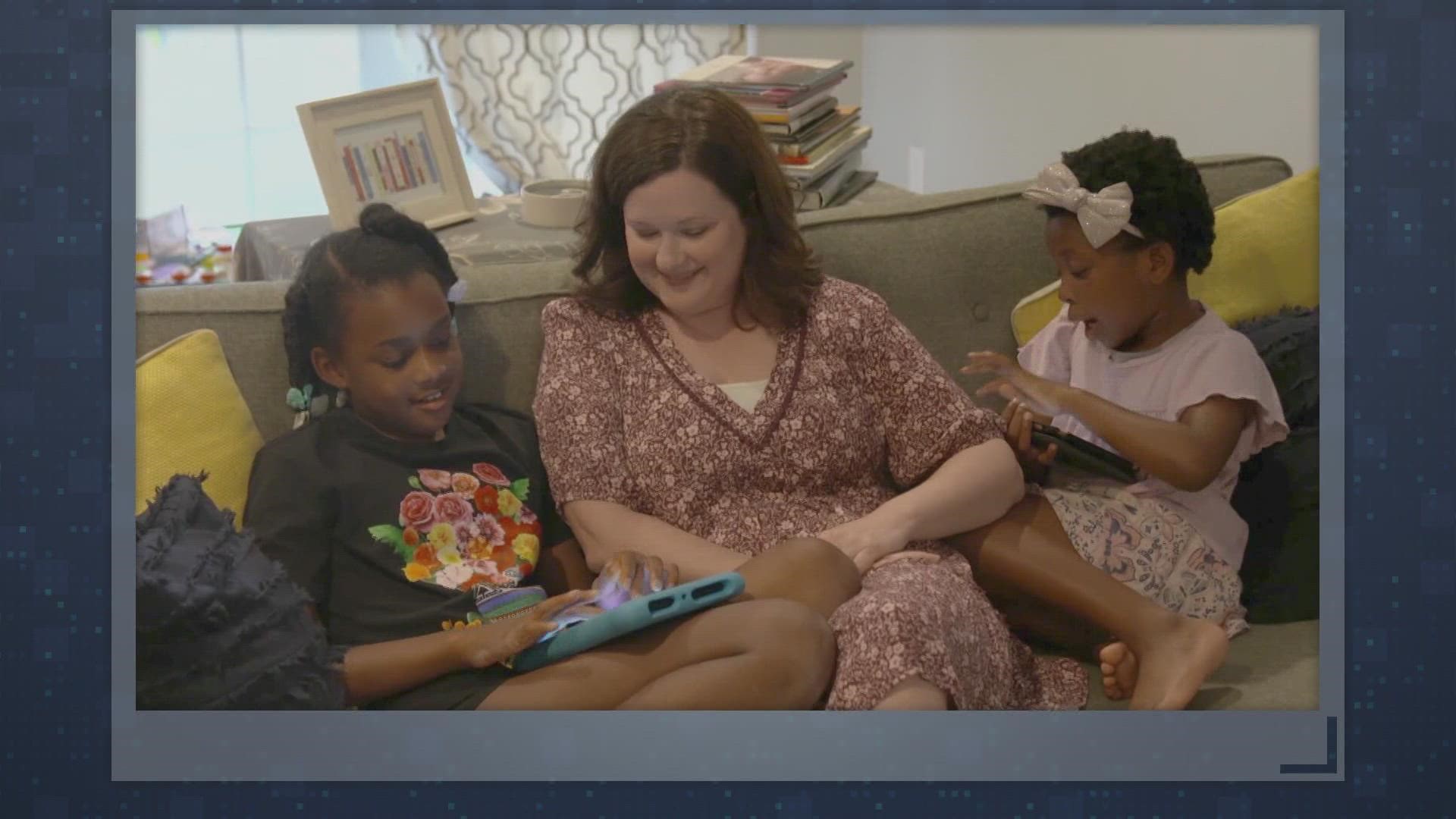FORT WORTH, Texas — Nobody said parenting was easy, and our current connected streaming devices add a new twist to the complexity of the job.
Our TVs, tablets, phones and computers can be useful for entertainment, learning, or streaming shows and movies. But that easy access to content comes with a cost. How do parents know what their kids are watching is age appropriate?
“It's tricky parenting in a digital age, because you are kind of parenting blindly,” said Emily Youree, owner of the online community Fort Worth Moms and a mother of two.
“You don't have a frame of reference, and you're also trying to find that balance of creating independence and a social community for your child, but also being aware that that same digital space has a lot of dangers and you can expose your kids to things unintentionally that you don't want to," said Youree.
Experts say it’s not feasible that today’s parents can watch everything their kids do. So, it’s important to know the tools parents can use to help navigate today’s vast array of content.
And it’s needed, when most kids have access to devices.
A Center for Cyber Safety and Education survey found that 80% of kids in grades 4-8 had a connected digital device, whether a cellphone, tablet or computer. And of those kids, 20% said they’ve used their device to watch adult programming online.
“It’s not easy,” said Polly Conway, senior TV editor for Common Sense Media, an organization that provides age-based reviews of content, discussion questions and other tools for parents, kids and educators.
“Everyone has a million accounts. Everyone is wanting to watch something different and it's a challenge to keep tabs on what your kids are up to," said Conway.
So what does she recommend?
For starters, familiarize yourself with device-based parental controls. Most tablets and phones allow parents to set limits on which apps kids can access or what content rating a user can watch. And the same for streaming services like Netflix, Disney+, YouTube and the like.
Conway said parents should set up age-appropriate profiles for their children, and use the filters provided to help limit the content available.
But the biggest key is conversation – being open with kids about what kind of shows are allowed and what’s not. Some parents even have kids sign an agreement about their content habits as a way to start developing responsibility about what’s being watched.
“The more you know your kid and the more you just keep talking, that’s really going to make a tricky situation a little bit easier,” said Conway.
She also underscores the importance of trust. It’s OK for parents to keep tabs on what their kids watch, to check device viewing history, etc., so long as it’s done openly. If a kid feels like parents are snooping on them behind their back, she says it can undermine trust and the long-term relationship, and even tempt kids to seek out content that’s outside the boundaries.
Youree agrees.
“It's just wanting to have that relationship in place that they will talk to me when something doesn't feel right about an interaction or something that they have viewed, rather than trying to be ashamed of it and keep it as secret," she said.

